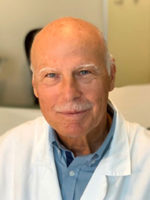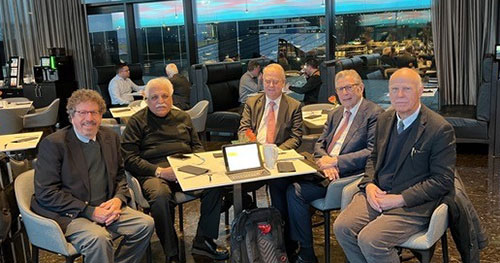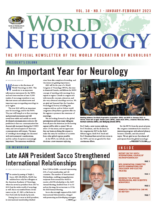By Wolfgang Grisold

Wolfgang Grisold
Welcome to this first issue of World Neurology in 2023. This newsletter is an important information instrument for the WFN, and each issue reaches at least 15,000 readers. I encourage members to use this instrument and submit news and important aspects regarding neurology in your region.
The year 2023 will be an important year for neurology, and for the WFN. The year will bring face-to-face meetings and personal encounters and will reveal how stable and useful our newly developed communication tools are. My prediction is that our communication has dramatically increased during the COVID crisis, and several aspects of electronic communication will remain. The issue of traveling is increasingly also discussed with environmental considerations, and the carbon footprint is increasingly important. The numerous worldwide crises have also complicated traveling and visa issues are gaining importance.
2023 will be the year of a World Congress of Neurology (WCN), this time in Montreal Canada, and follows the WFN concept of traveling with meetings from region to region. Canada is a region rich with research, concepts, education, and also very advanced neurology services. We are glad and honored that the Canadian Neurological Society is holding this congress with us, and we believe world congresses always have a positive effect in the regions to promote the awareness of neurology.
We are looking forward to the global participation and hope many delegates from all parts the Americas (as the hosting region) will be able to attend. We are aware of visa issues, and we appreciate that our hosts are doing the utmost to make the entry for members of societies from other global regions possible.
 At the WCN, we will also see three elections: a new treasurer replacing Prof. Stark, a new trustee replacing Prof. Freedman, and the decision on the congress site 2027 in the Arab/African region. Both Prof. Stark and Prof. Freedman have served two terms in the WFN, and we are grateful for their continuous efforts.
At the WCN, we will also see three elections: a new treasurer replacing Prof. Stark, a new trustee replacing Prof. Freedman, and the decision on the congress site 2027 in the Arab/African region. Both Prof. Stark and Prof. Freedman have served two terms in the WFN, and we are grateful for their continuous efforts.
For the WCN, from the practical point, the congress committees have created an interesting program with selected plenary lectures, scientific, and educational topics. We are glad to see that almost all participants from the global neurologic alliance are involved in the program, and the distribution of speakers includes more regional speakers than before.
Free lectures and guided poster sessions are waiting for your participation. Please look at the WFN and WCN congress site for the abstract submission. Again, please also check your travel possibilities and your visa requirements.
With the help of our professional congress organizer Kenes, we will add more interactivity in the congress, and we also will have several joint sessions with the WHO and members of the Global Neurology Alliance, such as the World Psychiatric Association and the World Federation of Neurosurgery, among others. The WFN educational subcommittee of “young neurologists” will organize two important sessions.
A patient day will be organized with the Canadian Neurologic Society (CNS), and the WFN is aiming to establish a global patient platform.
We are aware that traveling might not be easy for several reasons, yet there is need to make this congress available worldwide to all member societies. The WCN 2023 will have a virtual component, which will allow access to the program at low costs in low and low-middle income countries. Participation and dissemination of the developments in neurology are the main aims of the WCN. There will be reduced fees for low and low-middle income countries, and as always also congress bursaries will be available.
The WCN is one important aspect of the WFN’s activities, but there are others
Education: The work with educational activities progresses, and a department visit program for Asian candidates is being established by the Indian Academy of Neurology and will be announced soon.
We will continue the educational days, with the WFN day (which will be in December and devoted to neuropathies) and the joint (with the International Headache Society) IHS Headache Day in May. As a new addition, we are planning an educational day in cooperation with the Asian Oceanian Academy of Neurology (AOAN).
WHO and UN-ECOSOC: The cooperation with the WHO continues and, as in the last year, brain health and the implementation of IGAP are major tasks among others. This year’s World Brain Day (WBD) will be organized by regions in cooperation with the WFNR (World Federation of Neurorehabilitation) and is dedicated to “Brain health and disability.” Please follow WBD on the website, and we hope that all member societies will be able to contribute locally.
The global neurology alliance (GNA), consisting of world societies, specialist societies, regions, and the WFN specialty groups, will have a meeting at the WCN in Montreal. It is a powerful network, and the WFN will continue its efforts to cooperate with global societies and specialist societies.
Prof. Steven Lewis and I met with the president and other dignitaries of the World Psychiatric Association in Vienna in January (photo), to discuss future cooperations in regard to brain health and mental health.
The WFN wishes a successful and prosperous year in your region, and globally for neurology. •
